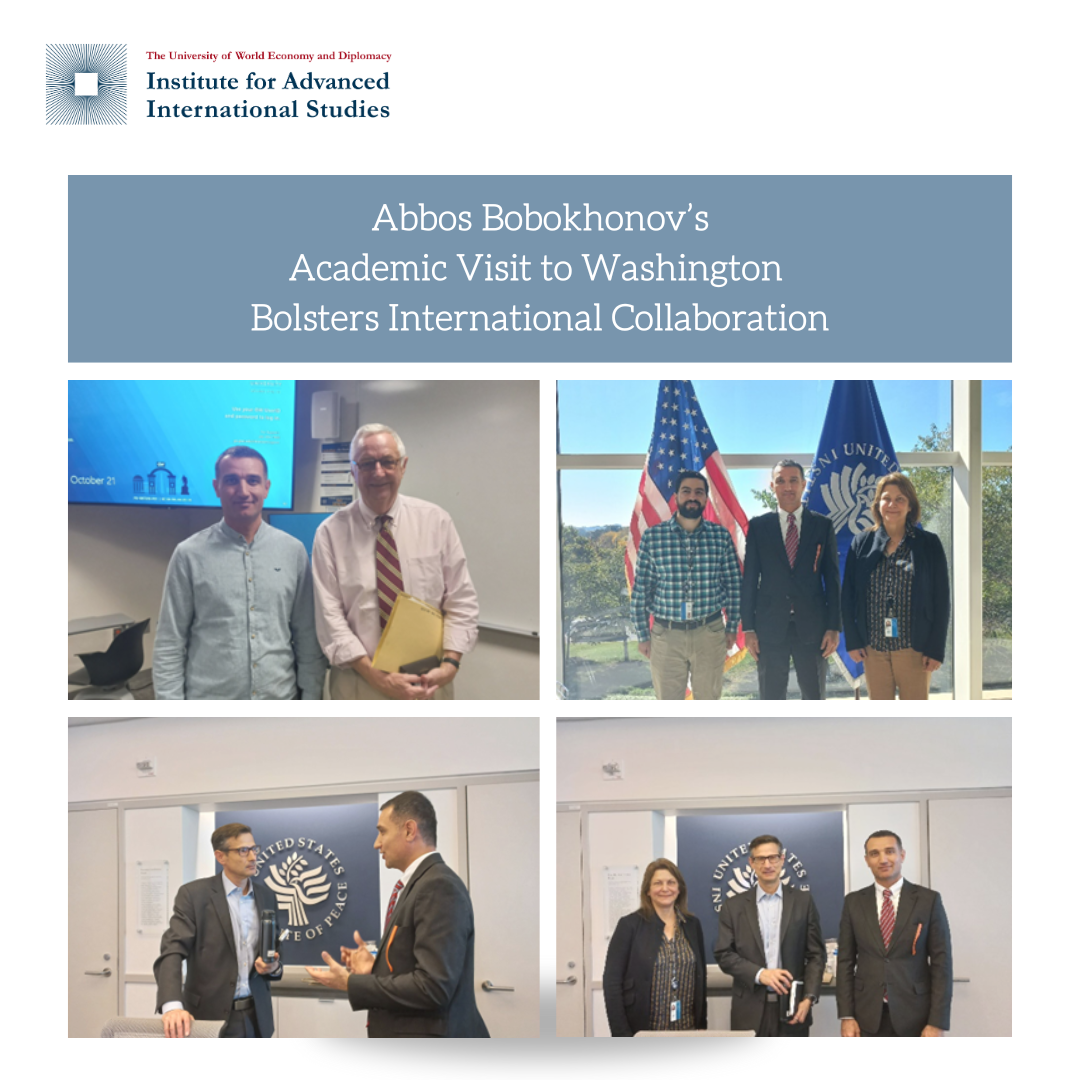
From October 21 to 23, Abbos Bobokhonov, Head of the China Studies Programme at the Centre for Asia-Pacific Studies, embarked on an important academic visit to Washington, D.C. His visit facilitated a series of significant engagements with esteemed scholars from prominent universities and experts from leading U.S. think tanks, enhancing prospects for future collaboration.
One of the key meetings was held with Professor David Shambaugh, Director of the China Policy Program at the Elliott School of International Affairs, George Washington University. Professor Shambaugh expressed a keen interest in China’s policies toward Central Asia and discussed possible avenues for academic cooperation between the Institute for Advanced International Studies (IAIS) and the Elliott School. Dr. Bobokhonov also attended Professor Shambaugh’s insightful lecture on China’s development under the leadership of Xi Jinping, which provided a deeper understanding of China’s contemporary political trajectory.
On October 23, Dr. Bobokhonov met with experts Daniel Markey and Carla Freeman from the United States Institute of Peace. This meeting featured an in-depth exchange on China’s global strategies, particularly its approach to Central Asia, and a comparative analysis of U.S. policies in the region. Both parties agreed on the value of continued collaboration, highlighting future opportunities for organising joint conferences, co-authoring research papers, and contributing articles on these subjects.
Further strengthening his visit, our expert held discussions with Sébastien Peyrouse, Research Professor of the Central Asia Program (CAP) at the Elliott School. The discussions focused on potential collaboration between IAIS and the Central Asia Program, specifically in the areas of joint academic research, seminar organisation, and roundtable conferences. Dr. Bobokhonov outlined the IAIS’s ongoing research and academic initiatives, which were met with great interest from Professor Peyrouse. Professor Peyrouse, eager to support deeper cooperation, committed to acting as a bridge between IAIS and George Washington University’s research institutions. He offered to publish contributions from IAIS scholars in the esteemed journal Central Asian Affairs, and invited researchers from Uzbekistan to take part in educational courses at the CAP, specifically tailored to scholars from Central Asia.
The visit marks a significant step forward in enhancing academic ties between Uzbekistan and leading research institutes in the United States, with future collaborations and knowledge-sharing initiatives firmly on the horizon.